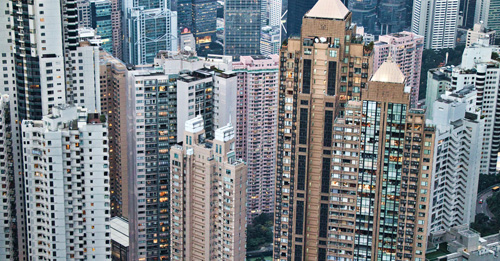Hong Kong's Goldman 1MDB fine is separate from US-led settlement, says city's regulator
23 October 2020 09:00

Hong Kong’s securities regulator was keen to emphasize today that its $350 million fine against Goldman Sachs — the largest fine in the city’s history — was separate from another record-breaking US-led settlement against the bank that was announced hours later.
Goldman Sachs (Asia) L.L.C. was fined $350 million by the Hong Kong Securities and Futures Commission late Thursday evening in Hong Kong for its role in the corruption scandal at 1Malaysia Development Berhad, or 1MDB.
The agency said the fine was linked to "serious lapses and deficiencies" in its management supervisory, risk, compliance and anti-money laundering controls, which ultimately contributed to the misappropriation of funds from 1MDB.
Hours later, the US Department of Justice announced that Goldman Sachs “will pay more than $2.9 billion as part of a coordinated resolution with criminal and civil authorities in the United States, the United Kingdom, Singapore, and elsewhere.”
But a spokesman for the SFC told MLex today that its enforcement action was “separate from the US.”
The spokesman pointed MLex to a quote in the SFC press release from its head, Ashley Alder, where it says that the action “is the result of a rigorous, independent investigation conducted by the SFC.”
“It’s not part of that,” the spokesman said, referring to the US-led settlement. “Quite a lot of people assumed that they are a collective action, but, no, this is our own sanction,” the spokesman said.
Asked if there was any cooperation at all, the spokesman said he couldn’t comment any further. The SFC’s press release and official penalty notice makes no mention of cooperation with the US DOJ.
The US DOJ’s press release announcing the fine and a follow up speech by DOJ official Brian Rabbitt, contain no acknowledgment of help or support from any Hong Kong authorities.
In many international corruption cases led by US agencies it is common for them to thank counterparts in other countries that helped provide evidence or support during the probe.
However, the SFC’s $350 million fine against Goldman is accounted for in the 74-page US deferred prosecution agreement as part of the total fines paid by Goldman under the US-led resolution.
The US DOJ didn’t immediately respond to questions on why Hong Kong wasn’t mentioned in its releases, or comment on the extent of cooperation between the jurisdictions.
By comparison, authorities in Singapore and the US thanked each other for their cooperation on this case.
The will to keep a distance between the Hong Kong and US actions raises questions about the extent of cooperation between the US and Hong Kong authorities at a time when diplomatic tensions between the US and China are rising.
In August, the US Department of the Treasury imposed sanctions on 11 officials in Hong Kong for “undermining Hong Kong’s autonomy and restricting the freedom of expression or assembly of the citizens of Hong Kong.”
Weeks later, the US suspended its extradition treaty with Hong Kong as part of its response to China implementing the controversial National Security Law in the city on June 30, which outlaws acts such as sedition and secession.
Record-breaking fine
The $350 million penalty against Goldman Sachs is the largest fine ever issued by the SFC, the spokesman for the agency confirmed.
The SFC led on the fine because the misconduct is linked to bond offerings and the relevant licenses that allow Goldman Sachs Asia to operate in that space are issued by the SFC, not the city’s other major financial regulator, the Hong Kong Monetary Authority.
Previously, the largest fine against a single entity by the SFC was a HK$400 million ($51.6 million) fine against a unit of HSBC in 2017 for “material systemic failures” in relation to the sale of derivative products in the run-up to the 2008 global financial crisis.
Under both the city’s anti-money laundering laws, the Anti-Money Laundering and Counter-Terrorist Financing Ordinance, and the law governing the SFC, the Securities and Future’s Ordinance, breaches can lead to a penalty of up to HK$10 million or three times the amount of the profit gained, or loss or costs avoided by the financial institution as a result of the misconduct.
But the spokesman for the SFC declined to disclose details on how the penalty amount was calculated in this case. “We have nothing to add to the statement,” he said.
Regardless, experts say the fine is significant and part of a trend that fines for financial misconduct are getting bigger.
“I think there are exceptional circumstances in this matter, but I do think that it does form part of a general trend of increasing fines,” said financial-regulation lawyer Urszula McCormack.
“As you see legislation mature, and be implemented across the industry, tolerance for misconduct becomes lower and lower. There is an expectation of calibrated controls, strong escalation mechanisms and robust compliance teams,” said McCormack, who is a partner at King & Wood Mallesons in Hong Kong.
“The next fine may well not be quite as high but the overall trendline is increasing, particularly for perceived systemic issues,” she said.
Angus Young, a lecturer at Hong Kong Baptist University, who specializes in corporate regulation, governance and compliance, said the fine shows that regulators and regulations in Hong Kong are “coming of age,” and shows the SFC is taking anti-money laundering compliance “very seriously.”
“However, the one disappointment is that this enforcement has come about quite late in the scheme of things,” he said.
Action against misconduct linked to the 1MDB scandal had previously been missing in Hong Kong when compared to action taken much sooner by Singapore, raising doubts about the city’s commitment to take money laundering and financial crime seriously.
“As such, the SFC's enforcement against Goldman Sachs (Asia) might just be a little slow, even though it could be said that 'better late than never',” said Young.
Related Articles
No results found
